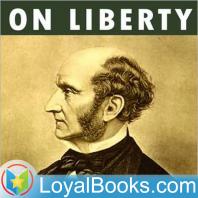On Liberty by John Stuart Mill
Published in 1859, On Liberty is a libertarian philosophical work by English philosopher John Stuart Mill that endorses his view on the importance of individuality for the constant progression and improvement of society. The work also supports economic and moral freedom, and openly criticizes the influence of social authority that in one way or another imposes a predefined set of acceptable attitudes and opinions. Highlighting issues including the incongruity between authority and liberty, the oppressive requisites of society, self-regarding conduct, education, and religious influence, Mill effectively proposes the means to preserve the rights of the individual, while at the same time appealing for the restriction of government coercion.
Dividing his philosophy in five chapters, Mill delivers his view on liberty through a utilitarian approach and accordingly depicts an overview of the concept of liberty. Consequently, he evaluates the significance of liberty to both individual and state. The piece opens with a description of the conflict between authority and individual freedom, as Mill reports the oppression of the government which restricts the right of free expression. According to Mill, the power of the state should be dependent on the liberty of its citizens, because it is they who essentially put them in such an influential position. Subsequently, he distinguishes between two types of oppression, government tyranny and the tyranny of the majority. Though disapproving of both, he considers the latter to be more destructive, as it is easier to stand against political beliefs than it is to defy the prevailing mindset and opinions of the social majority. In addition, Mill points out the benefits of having contrasting perspectives and opinions, and the importance of exercising one’s basic right to liberty. Furthermore, he prescribes the adequate level of interference from authority, and eventually exemplifies the proficiency of his theory.
Nevertheless, an enduring piece of philosophy, whose concepts can be studied, analyzed and put into practice, as they are relevant even more so in present societies. Although the treatise has received its fair amount of criticism for its encouragement to rebel against conformity, On Liberty is still highly valuable for its evaluation of the nature of liberty and its position in a democratic society. Moreover, the work is an essential element for those interested in learning more about the principles of government, political philosophy, political science, and the importance of liberty itself.
© 2024 LoyalBooks.com · more info
Artwork and data is from the podcast’s open RSS feed; we link directly to audio · Read our DMCA procedureListen
Information for podcasters
- Podcast GUID:
befdc53d-e8a0-5e9c-b4a6-fe1aa93d9086 - This podcast doesn’t have a trailer. Apple Podcasts has a specific episode type for a trailer, which also gets used by Spotify and many other podcast apps: but there isn’t one correctly marked in the RSS feed from the host.
- The audio of this podcast has an HTTP address, and not HTTPS. If it isn’t also available as HTTPS, it is no longer playable in any embedded player on an HTTPS site in Google Chrome.
- This podcast’s RSS feed is not secure. Apple may require this in future.
- This podcast appears to be missing from Amazon Music and Spotify. We list all the podcast directories to be in.
- See all episodes
- See this podcast’s listener numbers, contact details and more at Rephonic
- Validate this podcast’s RSS feed with Livewire, Truefans or CastFeedValidator
Privacy: The player will download audio directly from the host if you listen. That shares data (like your IP address or details of your device) with them.
Affiliate links: This page links to Apple Podcasts. We may receive a commission for purchases made via those links.
Cache: This podcast page made . Scheduled for update on . Rebuild this page now
